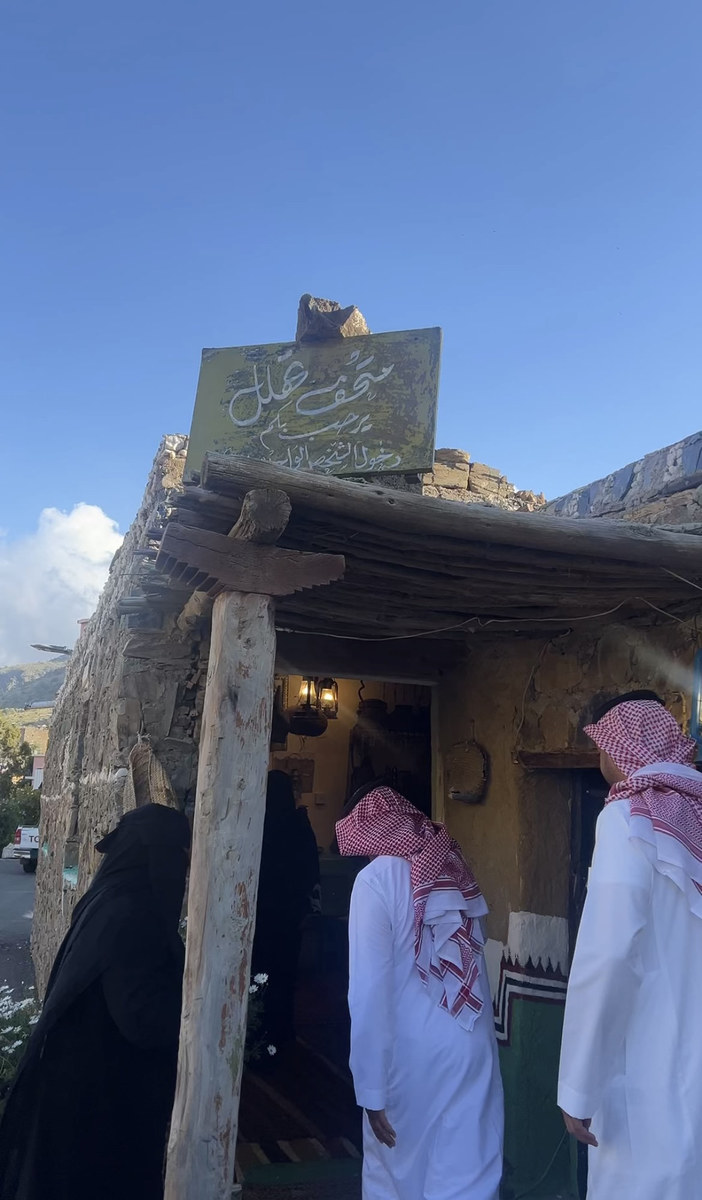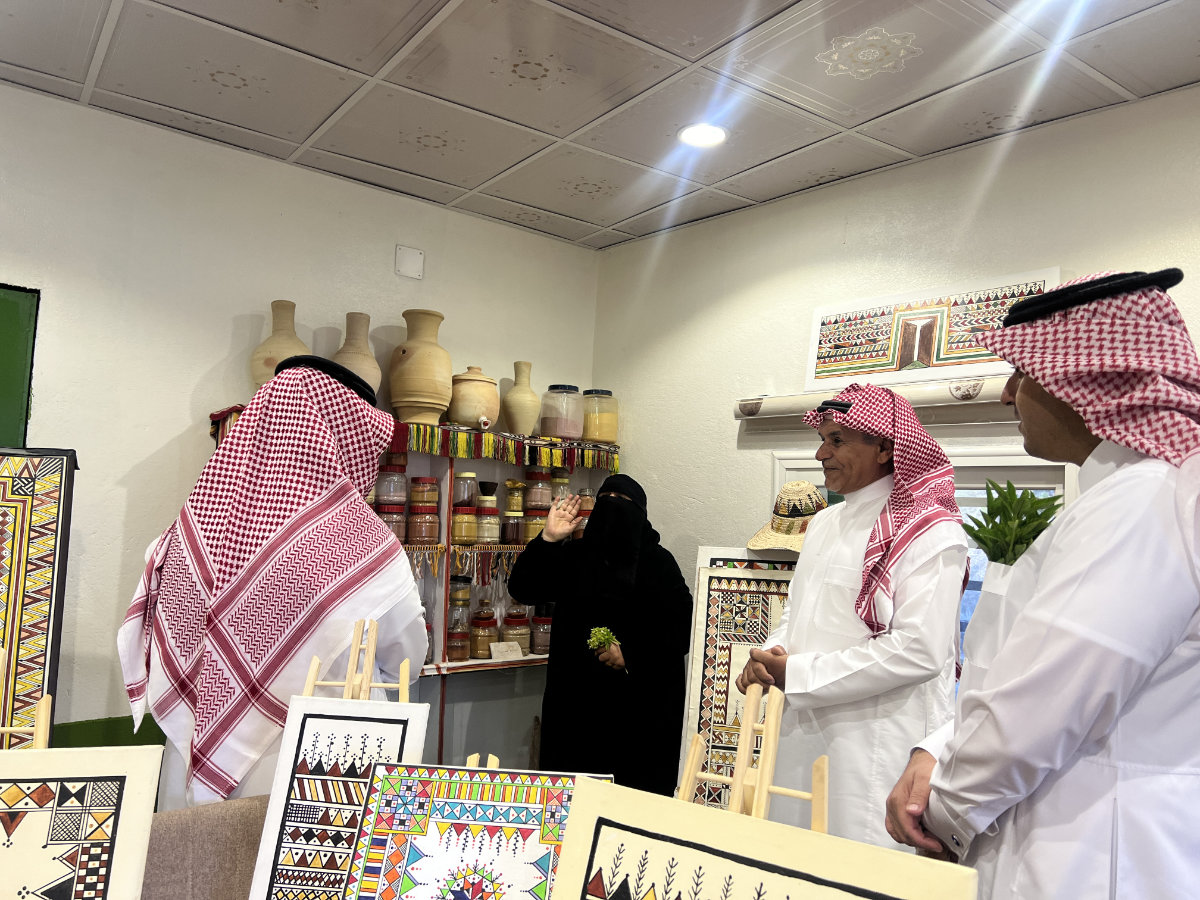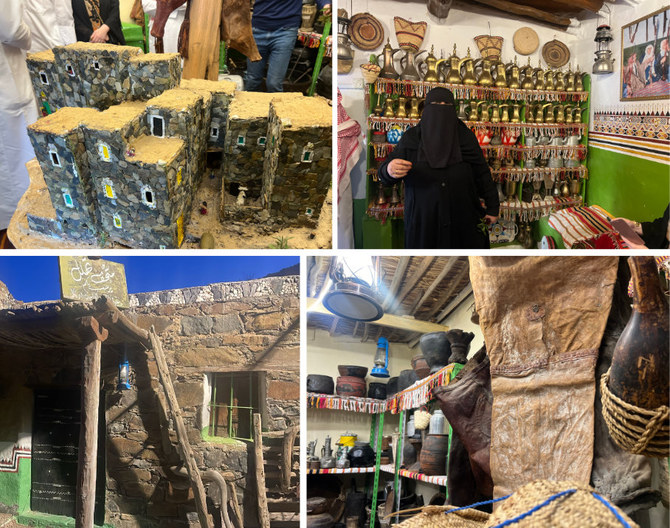ASIR: Perched atop the Souda Mountains in the Abha region of Asir province in southern Saudi Arabia is a modest museum created by an Asiri woman called Halima Asiri.
Passionate about old Saudi heritage, Asiri established the Tahlel Museum in a small traditional house.

Halima Asiri is a woman who is passionate about old Saudi heritage, which led her to establish the Tahlel Museum. The museum is a small house in the shape of old Saudi buildings. (AN photo by Rahaf Jambi)
It includes many heritage pieces, including coins, traditional costumes, wood art, and agricultural tools. It also includes her artistic works of Al-Qatt Al-Asiri, geometric shapes, and tribal symbols painted in vibrant colors.
“This is my small museum, where I exhibit the work of Al-Qatt Al-Asiri, a kind of natural color painting that have been certified by UNESCO as part of the list of the Intangible Cultural Heritage of Humanity. Each pattern has a name and a symbolic meaning. Men do not practice this art, thus women are the only ones who specialize in it,” Asiri told Arab News.
Asiri is one of the few women who still uses natural materials to create the art of Al-Qatt Al-Asiri. These colors are extracted from coal, rice, turmeric, pomegranate peel, stones and other sources.
“I take 24 colors from nature, such as clover, coal, stone, and leaves, grind them into a paste, and use that paste to paint canvases and walls,” she said.
Ancient coffee and teapots, clay cups, copper household utensils, and other artifacts are on display in one of the rooms.

Tahlel Museum owner Halima Asiri is one of the few women who still uses natural materials to create the art of Al-Qatt Al-Asiri. (AN photos by Rahaf Jambi)
“The handcrafted items found here date back to 400-500 years, and the people of the Asir region used them all,” Asiri said.
She incorporated a model of the old town in which she formerly resided in the museum. The town has since fallen into ruin.
“The old roads were difficult, and women had to carry wood, walk, and climb mountains to get to their homes. The model that I constructed depicts the hardship and strength of women in Asir,” she explained.
The museum also features the traditional attire worn by women in the Asir region.
“I have items of clothing that Asir women wear on their wedding night. I also have regular clothes, like straw hats,” she added.
Asiri started collecting antiques that date back centuries when she was young, and she made sure to collect antiques and present them in her museum in a unique way.
There are numerous kinds of swords, weapons, and clothing that the locals used in battle displayed on the walls.
The location also features a workshop where guests can learn how to paint Al-Qatt Al-Asiri works, in addition to selling her artwork on commission.
“I teach Al-Qatt Al-Asiri art as a trainer. I frequently get big groups of people, and not so long ago, I trained a group of foreign women,” she said.
The museum is also linked to a cafe where she serves traditional Asiri dishes like areekah using natural honey.
“Many foreigners have visited, including ambassadors and ministers,” she said.
Asiri greets visitors when entering the museum with a famous Asiri phrase, “a thousand welcomes.”
Owing to its natural beauty and rich cultural heritage, the Asir region is highly sought-after by those seeking to explore unspoiled landscapes, wander through charming villages, and explore historic castles.


































